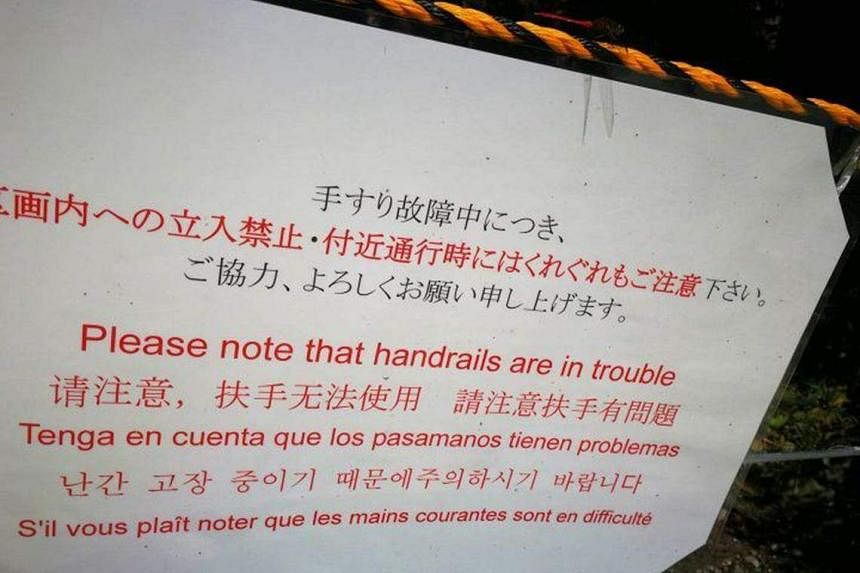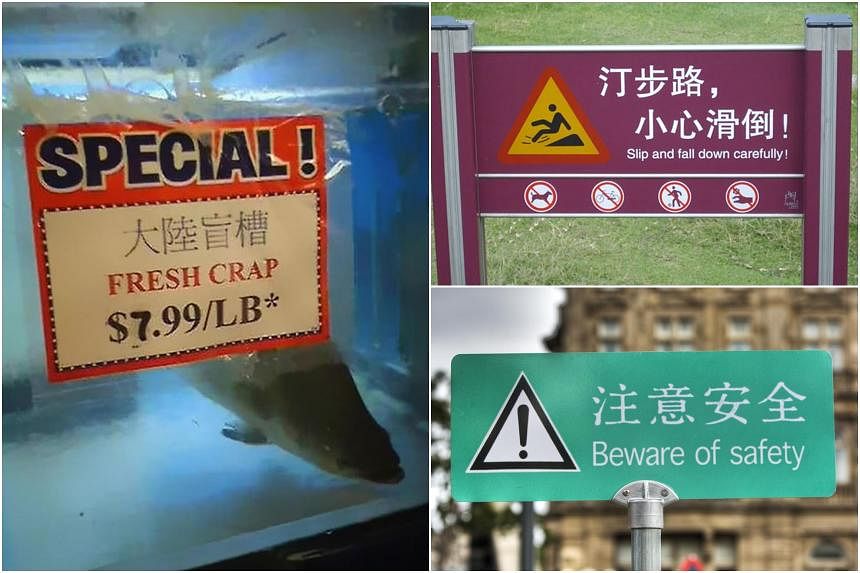“Carefully fall into the cliff”. “Beware of safety”. “Fresh Crap”.
Make no mistake, these are not irrational or topsy-turvy instructions, but instructions on actual signboards in China, which contain the right message in Mandarin but gets lost in translation to English.
Beijing’s foreign affairs office is looking to correct these mistranslations by inviting the public to submit images or videos of signs they suspect have been wrongly translated to English.
Residents in China’s capital who take photos of the signs can upload them to its official WeChat page, the Foreign Affairs Office of the People’s Government of Beijing said on Monday.
A check on its Wechat account revealed that a section titled “Signboard correction” has been set up.
Users are asked to look out for wrong spelling and grammatically incorrect expressions in public spaces, including museums, shopping malls and train stations.
They are encouraged to include information on the location of the sign, as well as a suggested correction.
The WeChat page also offers a list of standardised Mandarin to English translations for signboards, including road signs urging motorists to “buckle up” and one presumably meant for boutiques with a warning for customers: “Do not get lipstick stain on dress”.
Some users on microblogging platform Weibo responded to the news positively, noting that it demonstrated intentions to turn Beijing into a “true global city”.
China is not alone in having mistranslated signs in public spaces. Travellers in Japan and South Korea have shared images of signs with hilarious English translations.

While Beijing’s crusade to correct the city’s mistranslated signs will not be an overnight success, one Reddit user saw the positive side of these signs.
“What’s counter-intuitive is that you spend some time trying to figure out the sign, which somehow makes you pay more attention to the warning than if it was grammatically correct,” wrote the user on the social media platform.



